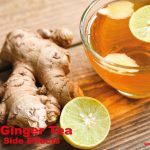Constipation is a condition in which bowel movements are difficult to pass and occur less often than normal. Common symptoms include abdominal pain, bloating, and feeling full earlier than expected when eating. Severe constipation can also lead to rectal bleeding or an intestinal blockage.
Constipation is most commonly caused by a lack of fiber in the diet, inadequate fluid intake, or a disruption in normal bowel habits. Other causes may include medications, physical inactivity, low magnesium levels, dehydration, and certain medical conditions like hypothyroidism and diabetes.
2.5 million Americans visit their doctor for constipation each year. More than 4 million Americans use laxatives to relieve their symptoms. Constipation is the most common gastrointestinal complaint in the United States, with an estimated prevalence of 2%-20%.
Fortunately, there are several natural home remedies that can help relieve constipation and provide relief from uncomfortable symptoms. Here are 20 of the best natural home remedies for constipation:
1. Drink More Water
Staying hydrated is essential for regular bowel movements, as water helps to keep stools soft and easy to pass. Water helps to lubricate the intestines, and is essential for digestion. It also helps flush toxins from the body and can reduce constipation symptoms quickly. Make sure you’re drinking at least 8 glasses of water per day and substantially more if you’re active.
2. Add Fiber to Your Diet
Increasing your intake of dietary fiber is one of the best ways to improve digestive health and relieve constipation. Insoluble fibers like wheat bran, nuts, seeds, and vegetables add bulk to stools, making them easier to pass.
3. Exercise Regularly
Regular exercise helps to stimulate the natural contraction of muscles in our digestive tract, aiding digestion and relieving constipation. Aim for at least 30 minutes of aerobic exercise per day, such as walking or light jogging.
4. Avoid Processed Foods
Eating a diet high in processed foods can reduce the amount of fiber you consume, resulting in constipation. Avoid processed meats, white flour products, and added sugar as much as possible to improve your digestive health.
5. Eat Probiotic Foods
Consuming probiotic-rich foods like yogurt, kefir, kimchi, sauerkraut, miso soup, and tempeh can help restore balance to your gut flora and improve digestion.
6. Take Magnesium Supplements
Taking magnesium supplements can help draw water into the intestines, soften stools, and stimulate peristalsis (the natural wave-like movement of the digestive tract). Aim for 400-500 milligrams daily for best results.
7. Try Natural Laxatives
Natural laxatives like prunes and psyllium husk can help to relieve constipation by drawing water into the intestines and adding bulk to stools. Drink plenty of water when taking natural laxatives, as they may cause dehydration if taken without adequate hydration.
8. Use Castor Oil
Castor oil has been used as a remedy for constipation for centuries. It helps to stimulate the movement of the intestines, and can often be used to relieve severe constipation. Take 1-2 teaspoons orally, followed by a glass of warm water.
9. Include Healthy Fats
Eating healthy fats like olive oil, coconut oil, avocados, and nuts can help improve digestion and stimulate the natural contraction of the intestines.
10. Avoid Caffeine
Caffeine-containing beverages like coffee, tea, and energy drinks can have a dehydrating effect, making stools harder and more difficult to pass. Reduce or eliminate your caffeine intake to improve digestive health.
11. Try Acupuncture
Acupuncture can help to improve digestive health by stimulating the natural contraction of muscles in the digestive tract. It can also reduce abdominal bloating, pain, and cramping caused by constipation.
12. Practice Yoga
Certain yoga poses like the bridge pose can help to stimulate digestion and relieve constipation symptoms. Practicing stretching exercises or light yoga regularly can help improve digestive health over time.
13. Drink Herbal Teas
Drinking herbal teas like chamomile, peppermint, ginger, and fennel can help to soothe the digestive tract and encourage regular bowel movements. Make sure to drink plenty of water throughout the day as well.
14. Eat Fermented Foods
Eating fermented foods like kimchi, sauerkraut, miso soup, and yogurt can help to restore balance to the gut flora and improve digestion.
15. Take Digestive Enzymes
Taking digestive enzymes like bromelain, papain, and amylase before meals can help break down food more effectively, aiding digestion and preventing constipation. Consult your doctor before taking any supplements or herbal remedies.
16. Incorporate Herbs
Adding herbs like peppermint, ginger, cayenne pepper, and cinnamon to your diet can help stimulate the digestive system and improve overall digestive health.
17. Avoid Dairy Products
Dairy products like milk and cheese are difficult for some people to digest, leading to constipation. If you think dairy could be the culprit, try eliminating it from your diet for a few weeks and see if there is any improvement.
18. Take Probiotics
Taking probiotic supplements can help restore balance to the gut flora, reduce inflammation in the digestive tract, and improve overall digestive health.
19. Avoid Fried Foods
Fried foods are difficult to digest and can slow down the digestive process. Try eliminating fried foods from your diet for a few weeks to see if it helps relieve constipation.
20. Exercise Regularly
Regular exercise can help stimulate the digestion and improve bowel movements. Aim for at least 30 minutes of physical activity per day, such as walking, jogging, or yoga.
By following these natural home remedies, you can help relieve constipation and improve your digestive health. With the right combination of lifestyle changes and natural remedies, you can get back on track.
When to see a doctor?
If you’ve tried these home remedies for constipation and have not seen improvement in your symptoms, it may be time to visit your doctor. Your doctor can help diagnose the underlying cause of your constipation and provide further treatment options. They may also recommend lifestyle changes such as increasing fiber intake, exercising more frequently, or taking medications like laxatives.
Although constipation can be uncomfortable, it is often easily managed with lifestyle modifications and natural home remedies. Try these 20 best natural home remedies for constipation to relieve your symptoms and get back on track!
This website does not provide medical advice.
All information provided on this website, and on associated social media networks, including but not limited to texts, images, and numbers are for general information purpose only. It is not intended as medical advice and it does not include all possible precautions, side effects, or interactions that may occur. Neither NaturalLivingOnline.com nor its author/founder take responsibility for how you use this information. Statements contained on NaturalLivingOnline.com have not been evaluated by the FDA. You should conduct thorough research via multiple sources and consult your physician or qualified doctor before using any essential oil or herbal remedy. Information on NaturalLivingOnline.com must not be relied upon for medical, legal, financial or other decisions.









